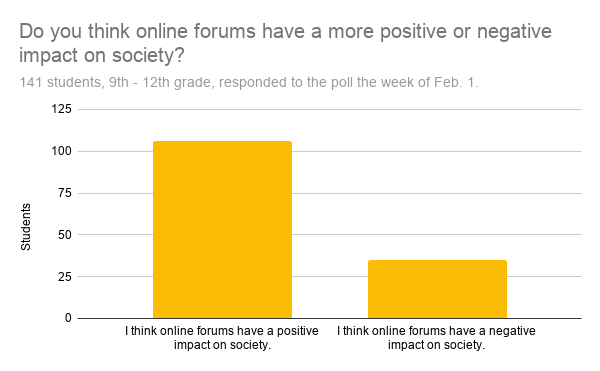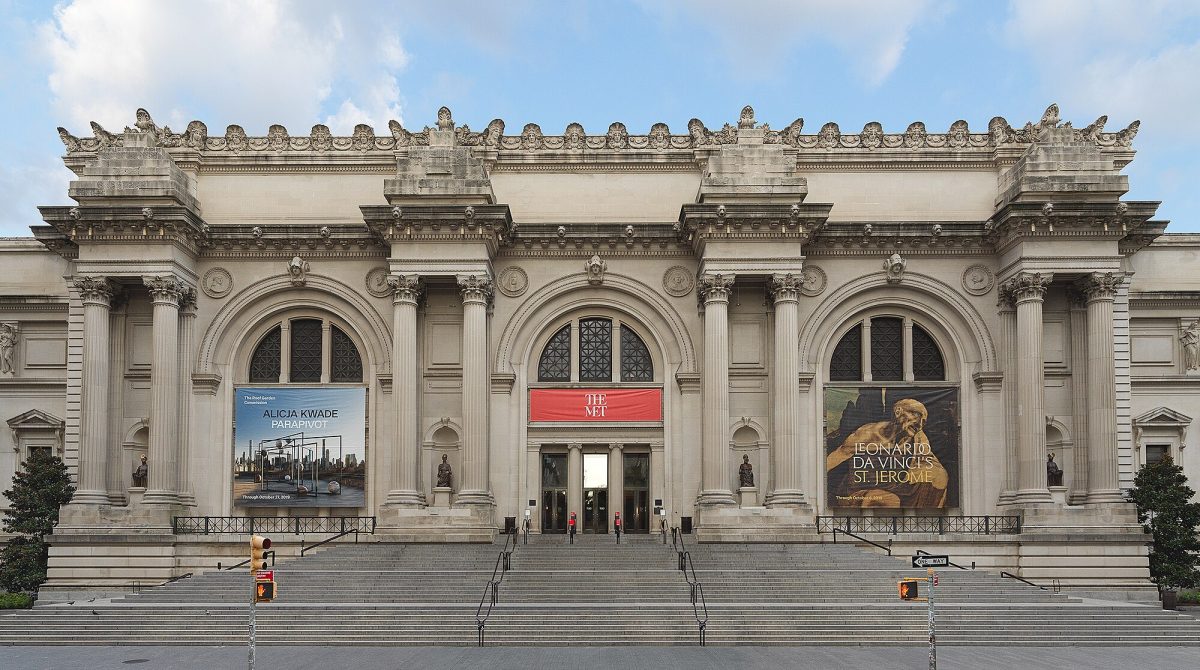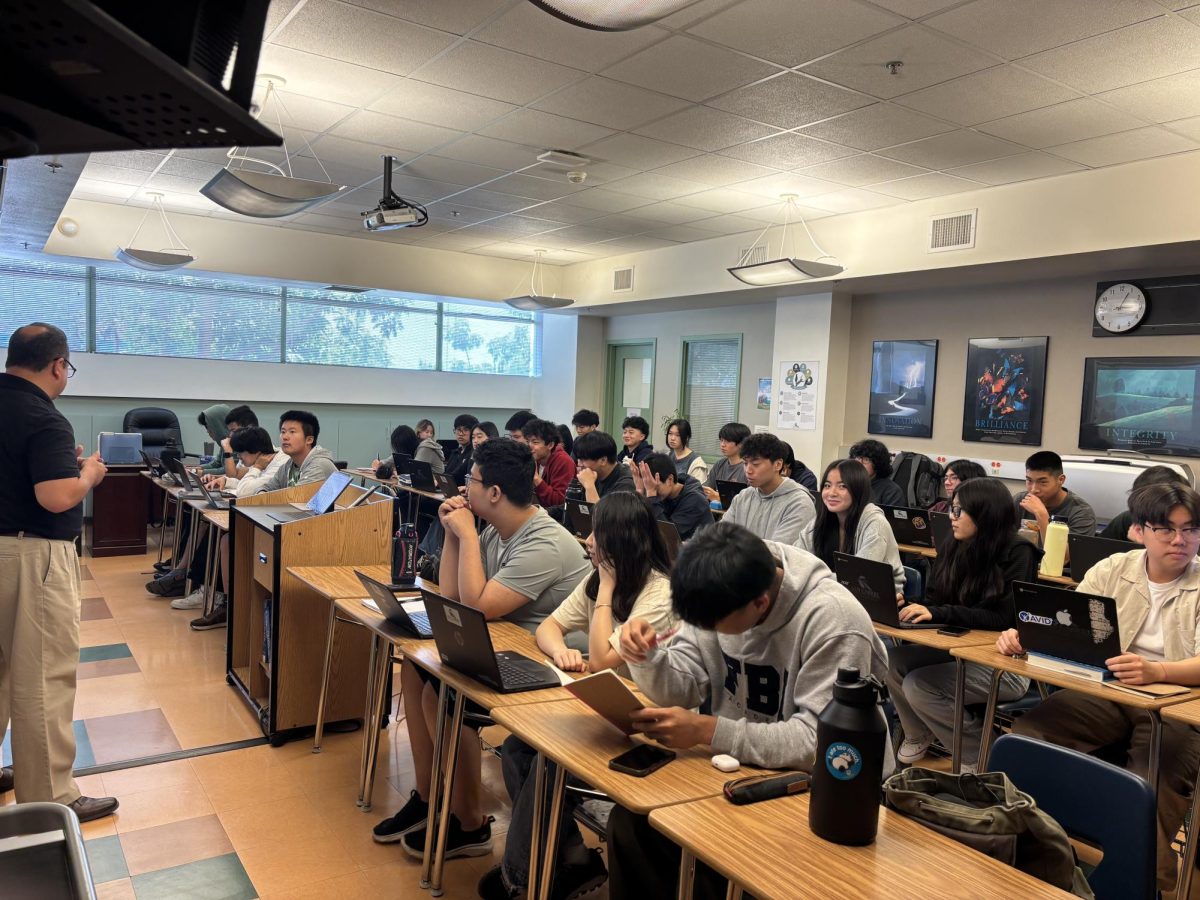
Online forums: revolution at our fingertips
By Lam Chung | Staff Writer
Throughout history, the power of revolution has granted abolition, reform, and justice— and now this power is at our very fingertips. Through digitized public forums, people are given an effective and easily accessible way to communicate, conduct discourse, and organize.
Prior to the invention of the computer, revolutionary changes only occurred when an issue hit its most insufferable peak, as organizing for unionization and executing the actual revolution was unimaginably difficult without the instant messaging we have today. Unless there was a specific organization or community that tried to combat their oppressing forces, such as the Black Panther Party, it would take a lot of campaigning or turmoil to gain enough support for a protest or revolution.
Today, with hundreds of digital public forums, such as Instagram, Reddit, TikTok, and Twitter, accessible with the click of a button, protests, boycotting, unionization, and mutual aid have been made much more accessible.
In 2014, the National Labor Relations Board ruled that “federal law gives you the right to join together with coworkers to improve your lives at work—including joining together in cyberspace.” Since this ruling, labor unions have utilized social media to help seek overly exploited workers in need of court defense.
In 2019, the labor union International Brotherhood of Electrical Workers, “successfully organized more than 1,400 Baltimore Gas and Electric workers. It was the fifth attempt to form a new local there, dating back more than 20 years to 1996,” according to The Economist. “To make this happen, organizers and employees set up a Facebook page to communicate with workers in disparate locations in Maryland.”
With the presence of the novel COVID-19, many have lost their jobs, and as a result, cannot pay for necessities such as rent or groceries, much less college tuition. Columbia University’s Young Democratic Socialists of America (YDSA) has conducted their own boycott— a tuition strike, bargaining with the private school to lower the hefty cost. Through organizing and spreading their message on Twitter and Discord, over 4,500 have joined the strike, and they’ve raised over $8,000 through digital fundraising.
An anonymous student of Columbia’s YDSA told University Business, “We are striking to win, but it is also about building a movement. I’m inspired by the solidarity we’ve seen not only from the Columbia community but from students all over the world, some of which are planning to do a tuition strike in the fall as well.” This organizing done over online forums sbow how easily they can be used for far-reaching change.
With as much good as online organization possesses, algorithms designed to give consumers content that will appeal to them have led people to online forums such as 4Chan, Parlor, and even Reddit, corners of the internet that are infamous for spreading hate, conspiracy theories, and misinformation.
These online forums serve as a cautionary tale on how to look at information more critically, in order to prevent mass misinformation from spreading in the future. The dangers of these platforms can be acknowledged while still promoting their use for unionization.
Through the alteration of a platform’s terms and conditions, hate speech can be prohibited, and strengthening fact checkers will prevent misinformation from spreading. By changing the way an algorithm feeds information, the less likely users will fall into a bigoted echo chamber.
Online forums have offered an effective way to come together and advocate for justice and we should use every instance of its impact, whether good or bad, to proceed with organizing and better strategies for the future— and it can all start with the press of a button.

Online public forums: a social and digital minefield
By Halle Fukawa | Editor in Chief
One of the most contested parts of the U.S constitution is the first amendment— more specifically, the right to free speech. Since the Constitution’s inception, public forums have been essential in allowing free speech for the people without censorship, however controversial the topics may be. Now that these same discussions have moved from the streets to the internet, it is clear that the term “free speech” must be redefined along with it.
In the Merriam-Webster dictionary, a public forum is defined as a place that “has been dedicated by government act to the free exercise of the right to speech and public debate and assembly.”
Traditionally, this meant protesters standing on street corners holding signs or attending open school board meetings. However, with the rise of social media and the more recent pandemic, these forums are now online, on platforms such as Twitter and Facebook. In times of physical isolation, these spaces have provided a way engage with a community of like-minded people using the internet.
The problem arises in this self-same principle: a community of like-minded people.
Online public forums have contributed to the creation of echo chambers, the constant bombardment of the same biased information. This has a wide impact especially considering that, globally, the average person spends about two and a half hours on these platforms per day, according to the Digital Marketing Organization.
Following the Capitol Insurrection on Jan. 6, the app Parler was taken down from both Apple and Google’s app stores.
According to the New York Times, “Millions of President Trump’s supporters have flocked to [the Parler app] as Facebook and Twitter increasingly cracked down on posts that spread misinformation.”
While marketed as an uncensored, free speech app, Parler became known as an echochamber of misinformation and violent behavior ranging from rumors of unsafe mail-in ballots to storming the Capitol.
The viral pro-Trump conspiracy Qanon gained popularity thanks to apps like Parler and other forums like 4chan. In December of 2020, NPR/IPSOS found that 17 percent of Americans believed that a group of “Satan-worshiping elites who run a child sex ring are trying to control our politics and media.”
In the past, harmful and unfounded conspiracies like these would quickly lose traction with time, however the use of these online platforms have allowed misinformation like the Qanon conspiracy to persist and spread like wildfire. While social media platforms like Facebook, Instagram, and Twitter have implemented the use of third-party fact checkers to prevent this, the power in numbers still poses a large threat.
Beyond online conspiracy theories, these platforms are affecting the stock market, as seen at the end of January, when the WallStreetBets forum caused a rapid rise in GameStop stock and lost hedge funds billions of dollars. The Washington Post described the platform as a “wildly popular Reddit forum focused on options trading that has become a sort of public hive mind where retail investors loosely coordinate their collective buying power.”
It is clear to see that if the 2.9 million Redditors who followed the page and hopped on the trend could beat out professional investors by sheer numbers, online public forums have more influence and power than any in-person gatherings from the past. As the use of social media platforms only increases globally, it is important to remember the weight that words hold, both when adding to and consuming information online. Rather than becoming another voice in the crowd, these forums allow for each individual voice to be heard— loud or quiet, old or young, factually correct or incorrect. But when every voice is heard, it is imperative to stop and consider the consequences.






